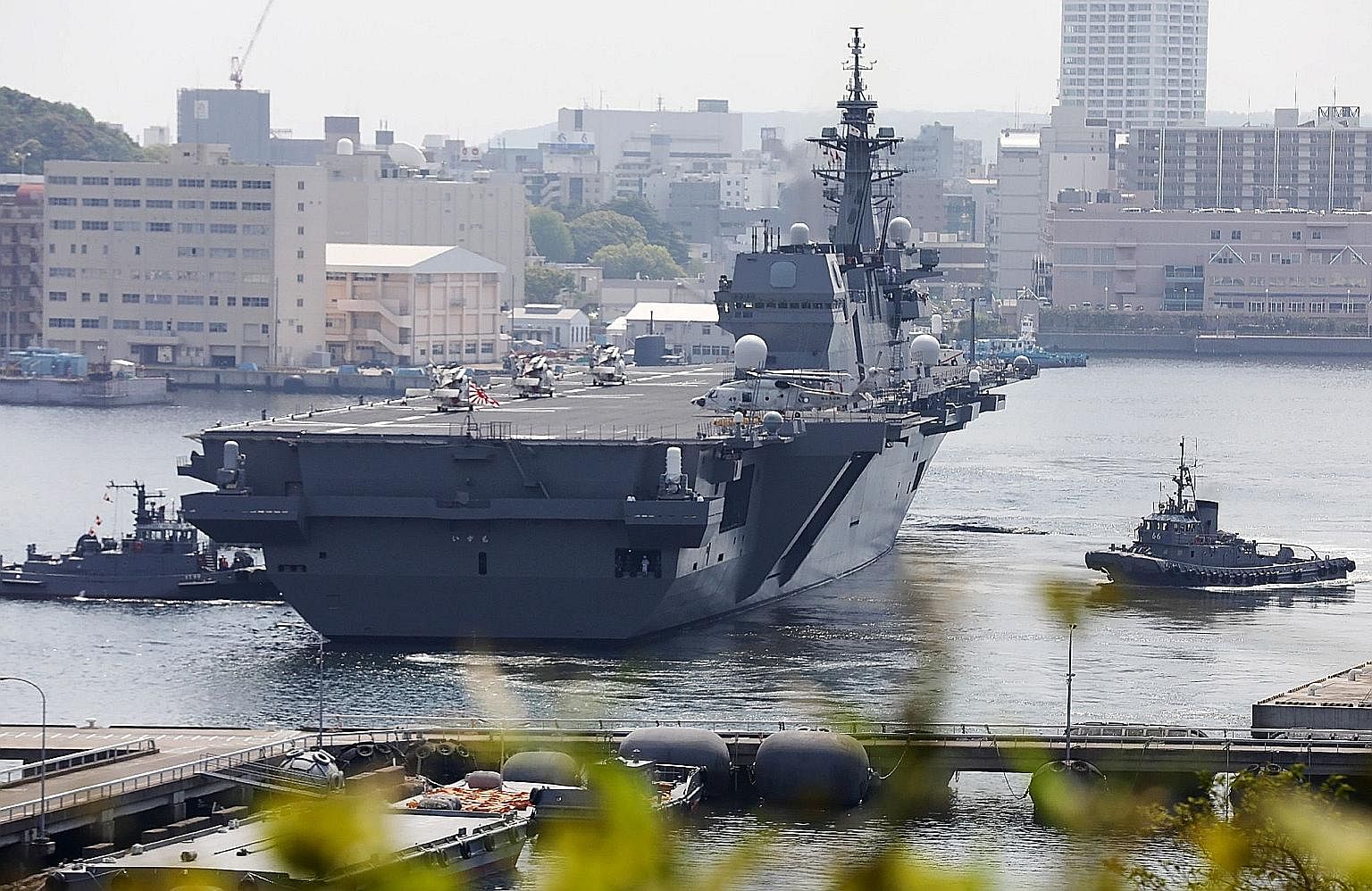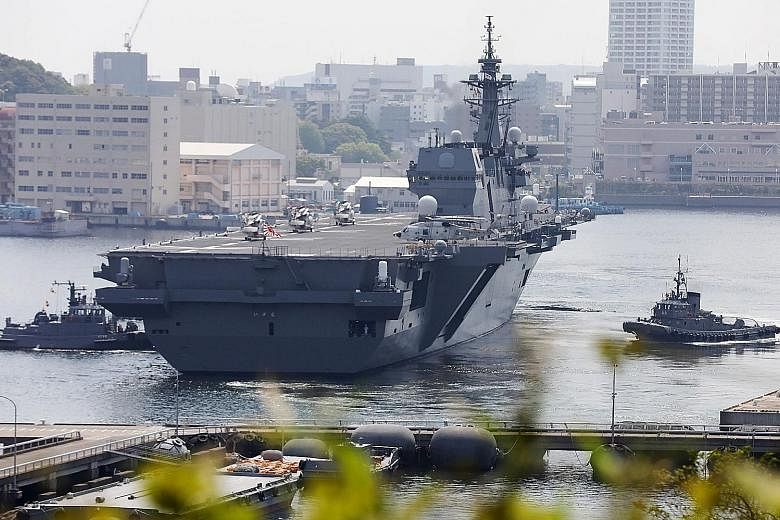The wind appears to be in Japanese Prime Minister Shinzo Abe's sails to achieve what the founding leaders of his Liberal Democratic Party (LDP) set out to do in 1955 - to revise the war-renouncing Constitution - as tensions soar on the Korean peninsula.
Mr Abe cited looming security threats on Monday - two days before Japan marks its 70th year of adoption of the United States-written supreme law - as the reason for taking the "historic step" to table changes this year.
The document is seen, especially by Japan's resurgent right wing, as a legacy of the country's crushing defeat in World War II that renders it crippled defensively.
The pacifist Article 9 of the charter states: "The Japanese people forever renounce war as a sovereign right of the nation and the threat or use of force as a means of settling international disputes."
But amid growing calls to shore up Japan's defence with more sophisticated offensive weapons, observers say the public will need some convincing over why Japan needs to rewrite the Article, given its already formidable military and ever-increasing defence budget that is among the highest globally.
Besides, Tokyo had in 2015 reinterpreted the Constitution to allow the Self-Defence Forces to go to the aid of its allies in overseas combat and take part in United Nations peacekeeping operations.

The basis of this, Mr Abe had argued, was that Japan could not reasonably expect its allies to come to its aid if it were unable to do likewise for them. It was also under this law that, for the first time, Japan deployed its largest warship Izumo on Monday to escort a US supply ship to the western Pacific.
Political scientist Jeffrey Kingston of Temple University Japan said: "Mr Abe doesn't really need to revise the Constitution to cope with the crisis on the Korean peninsula as this would have been covered under the 2015 reinterpretation."
Dr Koichi Nakano of Sophia University agreed, saying it was "almost tragicomical" how Mr Abe is using North Korea as leverage to achieve his goal.
Even so, security expert Tosh Minohara of Kobe University said there was "only so much reinterpreting Japan can do before the Constitution becomes just another piece of paper". "I think Mr Abe feels that is not the right way to proceed, and wants to make this more fundamental. It is like rebuilding a house, only with a strong foundation can he remodel it in whatever way he wants."
If and when an amended charter is put to a public referendum, voters will not be able to cherry-pick the clauses they agree with.
As such, Dr Kingston noted, there has been a "great deal of division" even within the ruling LDP as to which Articles should be changed, how they should be rewritten, or when this should be tabled.
To make the idea of revising the charter more palatable, it has been suggested that Article 9 revisions be grouped with less contentious issues like privacy rights.
Dr Nakano said: "The LDP might adopt a Trojan horse strategy and come up with other changes to make it easier to convince people."


